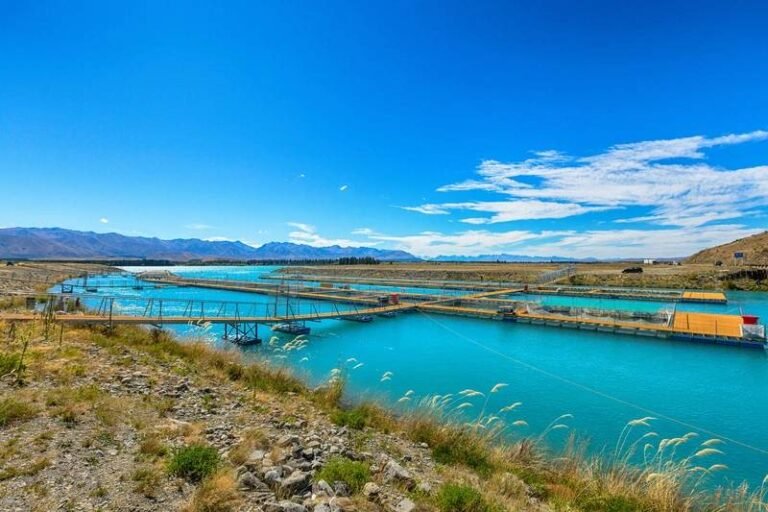New Zealand animal welfare group condemns government investment in salmon farming
SAFE, a prominent animal welfare organization based in New Zealand, has raised concerns over the government’s recent investment of NZ$11.72 million ($6.6 million) in salmon farming. The organization is demanding an urgent review of the industry due to endemic animal welfare breaches.
Emily Hall, Campaign Manager at SAFE, expressed dismay over the allocation of funds by the Ministry for Primary Industries (MPI), labeling it as a misdirection of government resources. She highlighted the lack of oversight and regulation in the fish farming industry, referring to fish farms as “underwater factory farms.”
SAFE pointed out the serious environmental risks posed by intensive fish farming, such as declining water quality and antibiotic pollution. The organization criticized the use of government sustainability funding for an industry that lacks proper animal welfare standards.
According to SAFE, farmed fishes are subjected to inhumane conditions, including overcrowding, poor water quality, skeletal deformities, skin lesions, and heat stress. The National Animal Welfare Advisory Committee (NAWAC) has been urged to establish a code of welfare for farmed fishes to address these concerns.
In addition to animal welfare issues, SAFE also raised the issue of a conflict of interest within MPI, which is responsible for both promoting intensive farming industries and ensuring animal welfare compliance.
Despite the criticism from animal welfare groups, Oceans and Fisheries Minister Shane Jones and Minister for Agriculture, Todd McClay, have defended the government’s investment in salmon farming. They emphasized the potential for increased exports and job creation in the aquaculture industry.
The ministers announced a joint project aimed at expanding salmon farming in New Zealand, including the exploration of deep-water farming options while maintaining environmental sustainability. The ‘Future Salmon Farming Programme’ is expected to boost salmon exports by $500 million by 2035.
McClay highlighted the importance of open ocean farming for the industry’s growth, stating that it will drive innovation and increase productivity and profitability for fish farmers. Jones echoed this sentiment, emphasizing the potential for open ocean aquaculture to increase New Zealand’s salmon production capacity significantly.
Despite the government’s efforts to promote salmon farming as a lucrative industry, animal welfare advocates like SAFE continue to push for greater oversight and regulation to ensure the well-being of farmed fishes.

